
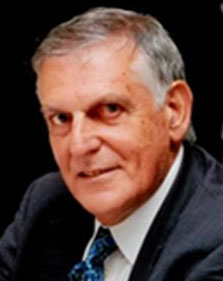
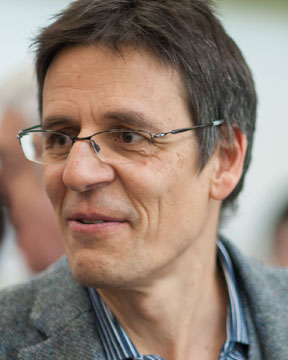
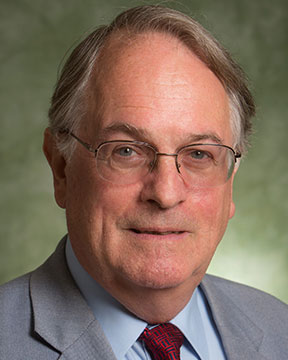
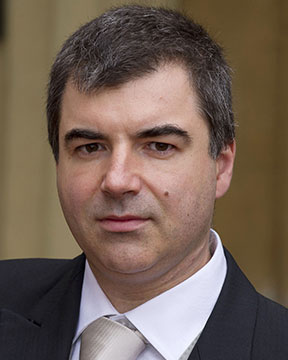
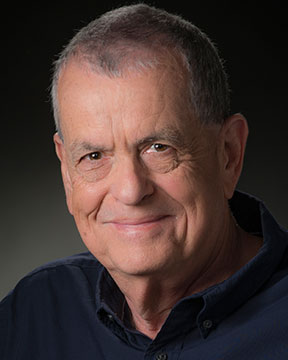
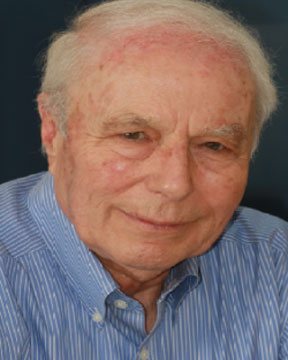
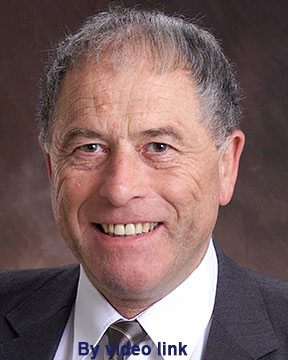
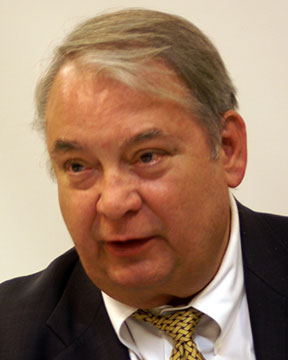
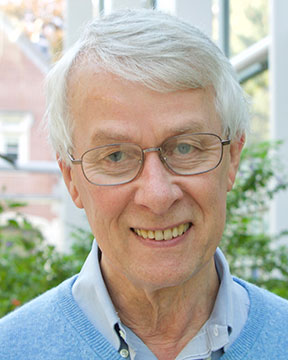
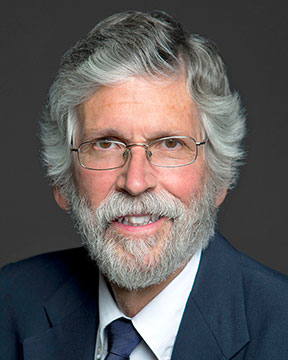
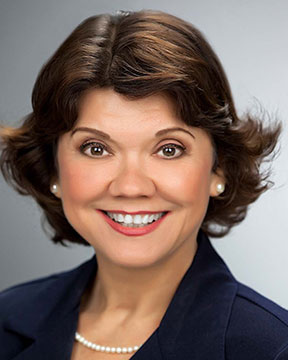
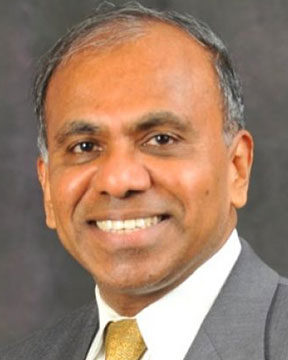
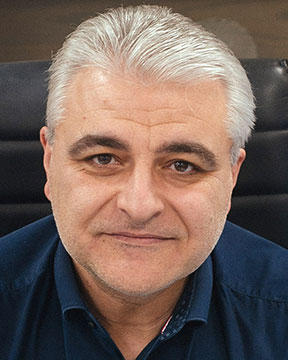















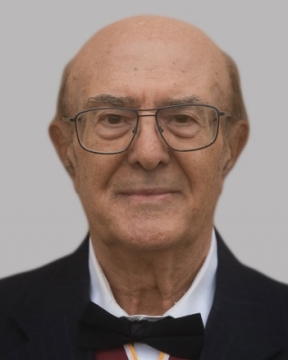
 Sir Ruggero M. Santilli obtained his Ph. D. in theoretical physics at the University of Torino, Italy in 1965; he then emigrated to the U.S.A. in 1967 where he was on the faculty of the University of Miami, Boston University, MIT, and Harvard University under financial support from NASA, UFOSR and DOE. In 1991 he accepted the position of President and Professor at the Institute for Basic Research in Florida. He is the author of 345 papers published in refereed journals and twenty post Ph. D. monographs in mathematics, physics, chemistry and biology; he is the Editor of a number of scientific journals in mathematics and physics and was awarded twelve U. S. patents. He is internationally known for developing new mathematics (known as Lie-admissible, Lie-isotopic and isodual mathematics) for the construction of hadronic mechanics, chemistry and biology, and for the verification of the 1935 Einstein-Podolsky-Rosen argument that "quantum mechanics is not a complete theory." These discoveries lead to the prediction of new technologies, incompatible with quantum mechanics but fully compatible with hadronic mechanics, which he developed as Chief Scientist at various U. S. publicly traded and private companies. For more details, please see the curriculum http://www.i-b-r.org/Ruggero-Maria-Santilli.htm
Sir Ruggero M. Santilli obtained his Ph. D. in theoretical physics at the University of Torino, Italy in 1965; he then emigrated to the U.S.A. in 1967 where he was on the faculty of the University of Miami, Boston University, MIT, and Harvard University under financial support from NASA, UFOSR and DOE. In 1991 he accepted the position of President and Professor at the Institute for Basic Research in Florida. He is the author of 345 papers published in refereed journals and twenty post Ph. D. monographs in mathematics, physics, chemistry and biology; he is the Editor of a number of scientific journals in mathematics and physics and was awarded twelve U. S. patents. He is internationally known for developing new mathematics (known as Lie-admissible, Lie-isotopic and isodual mathematics) for the construction of hadronic mechanics, chemistry and biology, and for the verification of the 1935 Einstein-Podolsky-Rosen argument that "quantum mechanics is not a complete theory." These discoveries lead to the prediction of new technologies, incompatible with quantum mechanics but fully compatible with hadronic mechanics, which he developed as Chief Scientist at various U. S. publicly traded and private companies. For more details, please see the curriculum http://www.i-b-r.org/Ruggero-Maria-Santilli.htm 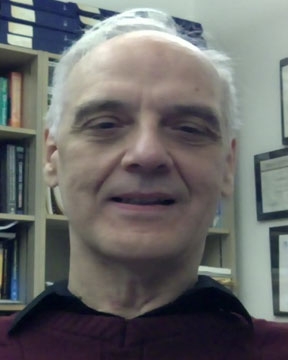
 Mike Mikalajunas has a degree in Mechanical Engineering with specialization in Fluid Mechanics and Thermodynamics. He has taken part in a
Mike Mikalajunas has a degree in Mechanical Engineering with specialization in Fluid Mechanics and Thermodynamics. He has taken part in a 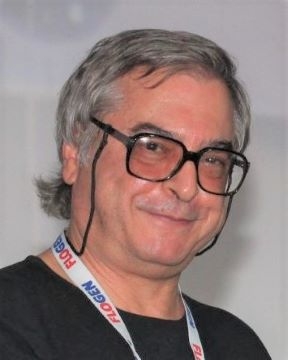
 Elias C. Aifantis graduated with a Diploma from National Technical University of Athens in 1973 and with a PhD from the University of Minnesota in 1975. He became an Assistant Professor at the University of Illinois at Urbana – Champaign in 1976, a visiting Professor at the University of Minnesota in 1980 and a full Professor at the Michigan Technological University in 1982. Currently he is an Emeritus Professor of Mechanics at Aristotle University of Thessaloniki/Greece and Michigan Technological University/USA, as well as Mercator fellow at Friedrich-Alexander University/Germany and a Distinguished Professor at Beijing University of Civil Engineering and Architecture/China. Formerly, he has also been a Distinguished Faculty Advisor at King Abdulaziz University/Saudi Arabia, Distinguished Visiting Expert at ITMO University/Russia and Southwest Jiaotong University/China, as well as MegaGrant Director at Togliatti State University/Russia. He has promoted highly interdisciplinary work in mechanics of materials by bringing into the field of solid mechanics ideas from diffusion theory, chemical reactions, and nonlinear physics. He has coined the terms dislocation patterning, material instabilities, gradient plasticity/elasticity, chemo/nanomechanics, and pioneered internal length gradient (ILG) theories in these fields. Currently, he is extending the ILG framework to revisit electromagnetism and Maxwell’s equations, as well as gravitation and Newton’s Law. He has published over 339 articles and received about 12,609 citations with 55 h-index (Scopus); 11,730 citations with 54 h-index (Web of Science); 17,860 citations with 66 h-index (Google Scholar). He is included in the ISI Web of knowledge list of the world’s most highly cited authors in engineering.
Elias C. Aifantis graduated with a Diploma from National Technical University of Athens in 1973 and with a PhD from the University of Minnesota in 1975. He became an Assistant Professor at the University of Illinois at Urbana – Champaign in 1976, a visiting Professor at the University of Minnesota in 1980 and a full Professor at the Michigan Technological University in 1982. Currently he is an Emeritus Professor of Mechanics at Aristotle University of Thessaloniki/Greece and Michigan Technological University/USA, as well as Mercator fellow at Friedrich-Alexander University/Germany and a Distinguished Professor at Beijing University of Civil Engineering and Architecture/China. Formerly, he has also been a Distinguished Faculty Advisor at King Abdulaziz University/Saudi Arabia, Distinguished Visiting Expert at ITMO University/Russia and Southwest Jiaotong University/China, as well as MegaGrant Director at Togliatti State University/Russia. He has promoted highly interdisciplinary work in mechanics of materials by bringing into the field of solid mechanics ideas from diffusion theory, chemical reactions, and nonlinear physics. He has coined the terms dislocation patterning, material instabilities, gradient plasticity/elasticity, chemo/nanomechanics, and pioneered internal length gradient (ILG) theories in these fields. Currently, he is extending the ILG framework to revisit electromagnetism and Maxwell’s equations, as well as gravitation and Newton’s Law. He has published over 339 articles and received about 12,609 citations with 55 h-index (Scopus); 11,730 citations with 54 h-index (Web of Science); 17,860 citations with 66 h-index (Google Scholar). He is included in the ISI Web of knowledge list of the world’s most highly cited authors in engineering.
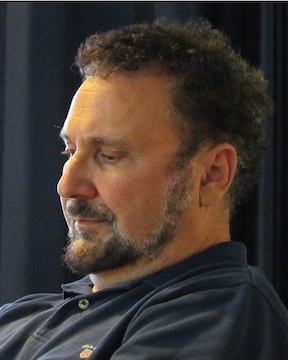
 Born 8-11-1948 Serres, Greece, Married, two daughters. 1971 BS Aristotle Un. Thessaloniki. 1980 PhD Cyclicity of Hypergroups, DUTh. 1974-2015 positions in DUTh. 1996-Full Professor, 2015 - Emeritus Professor. Head Dept. Education 8 years, Dean School of Education 10 years.
Born 8-11-1948 Serres, Greece, Married, two daughters. 1971 BS Aristotle Un. Thessaloniki. 1980 PhD Cyclicity of Hypergroups, DUTh. 1974-2015 positions in DUTh. 1996-Full Professor, 2015 - Emeritus Professor. Head Dept. Education 8 years, Dean School of Education 10 years.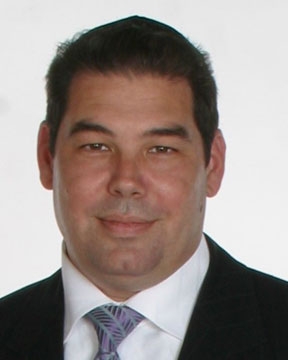
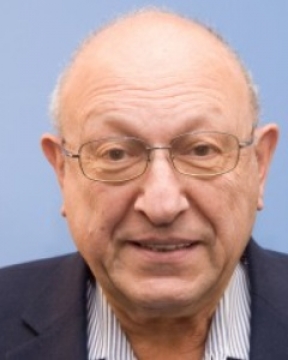
 Ephraim Suhir is on the faculty of the Portland State University, Portland, OR, USA, and is also CEO of a Small Business Innovative Research (SBIR) ERS Co. in Los Altos, CA, USA. He is Foreign Full Member (Academician) of the National Academy of Engineering, Ukraine (he was born in that country); Life Fellow of the Institute of Electrical and Electronics Engineers (IEEE), the American Society of Mechanical Engineers (ASME), the Society of Optical Engineers (SPIE), and the International Microelectronics and Packaging Society (IMAPS); Fellow of the American Physical Society (APS), the Institute of Physics (IoP), UK, and the Society of Plastics Engineers (SPE); and Associate Fellow of the American Institute of Aeronautics and Astronautics (AIAA). Ephraim has authored 500+ publications (patents, technical papers, book chapters, books), presented numerous plenary, keynote, invited and contributed talks worldwide, and received many professional awards, including 1996 Bell Laboratories Distinguished Member of Technical Staff (DMTS) Award (for developing effective methods for predicting the reliability of complex structures used in AT&T and Lucent Technologies products), and 2004 ASME Worcester Read Warner Medal (for outstanding contributions to the permanent literature of engineering and laying the foundation of a new discipline “Structural Analysis of Electronic Systems”). Ephraim is the third “Russian American”, after S. Timoshenko and I. Sikorsky, who received this prestigious award. His most recent awards are 2019 IEEE Electronic Packaging Society (EPS) Field award (for seminal contributions to mechanical reliability engineering and modeling of electronic and photonic packages and systems) and 2019 Int. Microelectronic Packaging Society’s (IMAPS) Lifetime Achievement award (for making exceptional, visible, and sustained impact on the microelectronics packaging industry and technology).
Ephraim Suhir is on the faculty of the Portland State University, Portland, OR, USA, and is also CEO of a Small Business Innovative Research (SBIR) ERS Co. in Los Altos, CA, USA. He is Foreign Full Member (Academician) of the National Academy of Engineering, Ukraine (he was born in that country); Life Fellow of the Institute of Electrical and Electronics Engineers (IEEE), the American Society of Mechanical Engineers (ASME), the Society of Optical Engineers (SPIE), and the International Microelectronics and Packaging Society (IMAPS); Fellow of the American Physical Society (APS), the Institute of Physics (IoP), UK, and the Society of Plastics Engineers (SPE); and Associate Fellow of the American Institute of Aeronautics and Astronautics (AIAA). Ephraim has authored 500+ publications (patents, technical papers, book chapters, books), presented numerous plenary, keynote, invited and contributed talks worldwide, and received many professional awards, including 1996 Bell Laboratories Distinguished Member of Technical Staff (DMTS) Award (for developing effective methods for predicting the reliability of complex structures used in AT&T and Lucent Technologies products), and 2004 ASME Worcester Read Warner Medal (for outstanding contributions to the permanent literature of engineering and laying the foundation of a new discipline “Structural Analysis of Electronic Systems”). Ephraim is the third “Russian American”, after S. Timoshenko and I. Sikorsky, who received this prestigious award. His most recent awards are 2019 IEEE Electronic Packaging Society (EPS) Field award (for seminal contributions to mechanical reliability engineering and modeling of electronic and photonic packages and systems) and 2019 Int. Microelectronic Packaging Society’s (IMAPS) Lifetime Achievement award (for making exceptional, visible, and sustained impact on the microelectronics packaging industry and technology).
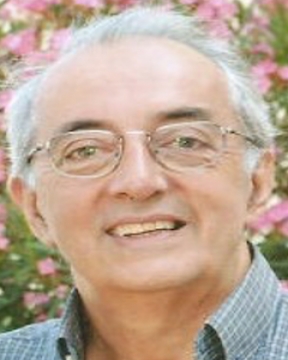
 Anastassios (Tassos) Bountis is Professor Emeritus of the Department of Mathematics, University of Patras, Greece. He has been the director of the Center for Research and Application of Nonlinear Systems of the University of Patras, and the Laboratory of Nonlinear Systems https://thalis.math.upatras.gr/~crans/ In 2014 he was elected Corresponding Member of the Academy of Athens in the chair of complex systems. He was the recipient of the 2014 Charles Hermite Science Ambassador Award of Saar/Germany and the 2009 Academy of Athens Award for “Dynamical Systems”. In 2015 he was elected member of the European Academy of Science and Arts, at Salzburg, Austria.
Anastassios (Tassos) Bountis is Professor Emeritus of the Department of Mathematics, University of Patras, Greece. He has been the director of the Center for Research and Application of Nonlinear Systems of the University of Patras, and the Laboratory of Nonlinear Systems https://thalis.math.upatras.gr/~crans/ In 2014 he was elected Corresponding Member of the Academy of Athens in the chair of complex systems. He was the recipient of the 2014 Charles Hermite Science Ambassador Award of Saar/Germany and the 2009 Academy of Athens Award for “Dynamical Systems”. In 2015 he was elected member of the European Academy of Science and Arts, at Salzburg, Austria. SIPS is the flagship event of FLOGEN STARS OUTREACH, a not-for-profit, non-political and all-inclusive science organization. SIPS as well as FLOGEN STARS OUTREACH takes no sides in political, scientific or technological debates. We equally welcome, without reservations, all spectrum of ideas, theories, technologies and related debates. Statements and opinions expressed are those of individuals and/or groups only and do not necessary reflect the opinions of FLOGEN, its sponsors or supporters.
FLOGEN Stars OUTREACH |
Home |
Contact Us |
Privacy Policy |
Photo and Video Participant Consent |
Cancellations/Refund Policy |
Travel Insurance Policy
© Copyright of FLOGEN Stars Outreach Organization: The content of this page including all texts and photos are copyright of FLOGEN Stars Outreach and none can be used in their original or in any modified or combined form in any publication, web site or in any other medium whatsoever without prior written permission from FLOGEN Stars Outreach.



